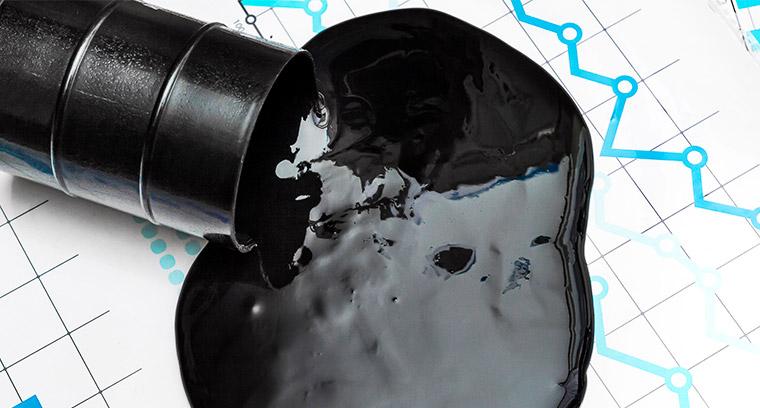Crude Oil
Crude Oil is a natural resource used as a raw material in the refining and petrochemical industries.

3 minutes for reading
Definition of crude oil
Crude Oil is a combustible, oily, viscous, dark-coloured liquid consisting of complex hydrocarbons of different molecular weights and other chemical compounds. Its main use is in the energy sector. The ability of refined products to release significant quantities of energy when burned makes oil one of the world's leading energy carriers.
This natural resource produces fuels (petrol, paraffin, gases, fuel oil, diesel, and jet fuel), lubricants, chemicals, polymers, fabrics, building materials, and other products in high demand.
Crude oil grades
There are more than 280 crude grades, with Brent Blend, West Texas Intermediate (WTI), and Dubai Crude being the most common grades
- Brent is the British and European standard for oil, which is produced in the North Sea
- WTI is a grade and standard of oil produced in the US
- Dubai Crude is the brand and standard of oil exported from the Persian Gulf to the Asia-Pacific region
How to trade crude oil
Crude Oil trading refers to buying and selling different types of "black gold" and related assets for profit. As it is a finite resource, its value can vary significantly due to supply and demand fluctuations in the market.
Available options for crude oil trading:
- Commodity exchanges are special, usually closed platforms where trading activities take place. They control the obligations of all traders and act as a guarantor of transactions. Commodity exchanges trade through an intermediary with a special licence
- CFDs are contracts between a trader and a broker to transfer the difference between the current value of an asset (at contract inception) and its future value (at contract closing)
- Futures are binding agreements between a buyer and a seller to deliver an underlying asset in the future, or for one party to pay the other the difference between the contract's value and the underlying asset's future value
- Options are non-binding agreements between the seller and the buyer that can be cancelled
What affects the price of crude oil?
- Supply and demand. When demand for crude oil increases, its price goes up; when it goes down, its price drops
- World events. Military conflicts or natural disasters can trigger a rise or fall in demand for natural resources
- Inventory information. When crude stocks increase, crude prices tend to go down; when stocks decrease, crude prices rise. This is due to an oversupply or shortage in the market
- OPEC. The Organisation of the Petroleum Exporting Countries controls and regulates the sales and production of oil with the aim of optimising its value
- Alternative energy sources. The transition of countries and individual companies to renewable energy resources could reduce the demand for oil in the long term
- Market speculation. History has seen traders purposely or accidentally cause oil prices to rise or fall, thereby increasing panic in the market
What are the risks involved in crude oil trading?
- Significant changes in the value of crude oil over a short period
- Using leverage in CFD or futures trading increases the risk of loss
- The need for a thorough understanding of market fundamentals, and the ability to accurately and precisely forecast resource price movements